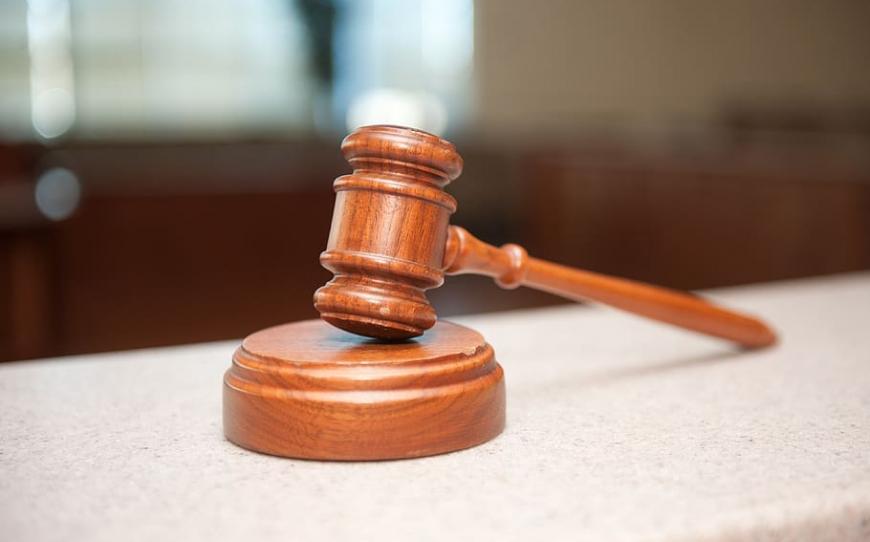
Maritime Accidents in New Orleans: How a Lawyer Can Help You
New Orleans, located along the Gulf of Mexico and the Mississippi River, is a major hub for maritime activity. From offshore oil rigs and cargo ships to fishing vessels and barges, thousands of workers in this region are involved in maritime industries. While these jobs are essential to the economy, they come with significant risks. Maritime accidents—whether on vessels, docks, or offshore installations—can lead to serious injuries, substantial financial losses, and, in tragic cases, fatalities.
When a maritime accident occurs, navigating the legal landscape can be daunting. Maritime law is complex, with a unique set of regulations and protections that differ from other areas of personal injury law. If you or a loved one has been involved in a maritime accident, hiring an experienced maritime lawyer in New Orleans is essential to protect your rights and secure the compensation you deserve. In this article, we’ll explore common maritime accidents, the legal rights of injured workers, and how a skilled maritime lawyer can help you through every step of the legal process.
Understanding Maritime Accidents
Maritime accidents are incidents that occur on navigable waters, including oceans, seas, rivers, and coastal waters, as well as accidents involving workers on vessels or in maritime-related industries like offshore oil drilling. These accidents can result in severe injuries, long-term disabilities, or even death, and they often involve complex legal claims that fall under various maritime laws.
Common Types of Maritime Accidents
- Offshore Oil Rig Accidents: Offshore oil rigs are some of the most dangerous work environments, where workers face hazards such as explosions, fires, equipment failures, and falls. Injuries can be severe and may include burns, broken bones, and traumatic brain injuries.
- Vessel Collisions: Vessel collisions occur when ships collide with one another or with fixed objects, such as docks or oil platforms. These accidents can cause extensive damage to the vessels and injuries to the crew members aboard.
- Slip and Falls: Wet, slippery decks, or poorly maintained surfaces on ships and docks can cause workers to slip and fall, leading to injuries like broken bones, concussions, and spinal cord injuries.
- Crane and Equipment Accidents: Many maritime workers handle heavy machinery, including cranes and winches, to move cargo or materials. Accidents involving malfunctioning or improperly operated equipment can result in severe injuries or fatalities.
- Toxic Exposure: Maritime workers, especially those on offshore rigs or in certain cargo industries, may be exposed to hazardous chemicals or fumes, leading to serious health problems such as respiratory illnesses or chemical burns.
- Longshoreman Injuries: Workers involved in loading and unloading cargo, known as longshoremen, face the risk of being crushed by falling containers, struck by moving vehicles, or caught in heavy machinery.
- Man Overboard Incidents: Falling overboard is a serious risk for workers on vessels, especially in rough seas or poor weather conditions. These incidents can lead to drowning or severe injuries from hypothermia.
- Fires and Explosions: Fires or explosions can occur on ships or offshore oil platforms due to equipment malfunctions, fuel leaks, or unsafe handling of hazardous materials. These incidents often result in catastrophic injuries or fatalities.
Maritime Law and the Rights of Injured Workers
Maritime law, also known as admiralty law, is a specialized area of law that governs legal disputes and accidents occurring on navigable waters. In the United States, maritime workers have specific legal protections under federal laws that differ from standard workers’ compensation claims. These laws allow maritime workers to pursue compensation for injuries, lost wages, medical expenses, and other damages.
Key Maritime Laws That Protect Workers
- The Jones Act: The Jones Act, also known as the Merchant Marine Act of 1920, provides legal protections to seamen who are injured while working on vessels. Under the Jones Act, injured seamen can sue their employers for negligence if their injuries were caused by unsafe working conditions, equipment failures, or improper training. Unlike workers’ compensation laws that apply on land, the Jones Act allows injured workers to seek compensation for pain and suffering, lost wages, and medical expenses.
- Longshore and Harbor Workers’ Compensation Act (LHWCA): The LHWCA provides compensation to maritime workers who are not covered by the Jones Act, such as longshoremen, harbor workers, and dockworkers. This law provides benefits for medical treatment, rehabilitation, and lost wages for those injured while working on docks, loading or unloading ships, or performing other maritime-related work.
- Death on the High Seas Act (DOHSA): This law allows the families of maritime workers who are killed in international waters due to negligence to seek compensation. The DOHSA covers incidents that occur more than three nautical miles from the U.S. coastline and provides compensation for lost financial support, funeral expenses, and other damages.
- Maintenance and Cure: Under the principle of “maintenance and cure,” seamen who are injured while working are entitled to medical care (cure) and basic living expenses (maintenance) until they reach maximum medical recovery. This benefit is available regardless of who was at fault for the accident.
How a Maritime Lawyer Can Help You After an Accident
Navigating the complexities of maritime law is not something an injured worker should attempt alone. Maritime laws involve a unique set of rules, and the claims process is often complicated by jurisdictional issues, statutes of limitations, and the need to prove negligence in some cases. Here’s how a maritime lawyer in New Orleans can help you after an accident:
1. Providing a Thorough Investigation
One of the first things a maritime lawyer will do is conduct a thorough investigation of the accident. This involves gathering evidence such as incident reports, safety records, witness statements, and photos or video footage of the accident scene. If necessary, your lawyer may also work with accident reconstruction experts or industry professionals to determine how and why the accident occurred.
A maritime lawyer’s expertise ensures that all relevant evidence is collected and preserved, which is critical in proving your case, especially if your employer or insurance company disputes liability.
2. Determining Liability and Filing the Right Claims
A crucial part of any maritime accident case is determining who is liable for the injuries. In many cases, liability may fall on the employer for failing to provide a safe work environment or on third parties, such as equipment manufacturers or other vessel operators, whose negligence contributed to the accident.
Your lawyer will identify all responsible parties and ensure that the appropriate legal claims are filed, whether it’s a Jones Act claim for seamen, an LHWCA claim for longshoremen, or a wrongful death claim under DOHSA.
3. Negotiating with Insurance Companies
Insurance companies often try to minimize their payouts, and maritime employers may offer quick settlements that do not reflect the full extent of your damages. An experienced maritime lawyer knows the tactics insurance companies use and will negotiate aggressively on your behalf to secure a fair settlement.
A maritime lawyer understands the full range of damages you are entitled to, including compensation for medical expenses, lost wages, pain and suffering, and future earning capacity. They will ensure that any settlement offer reflects the full scope of your losses.
4. Proving Negligence and Unseaworthiness
In many maritime accident cases, proving negligence or unseaworthiness is critical to securing compensation. Under the Jones Act, for example, injured seamen must demonstrate that their employer’s negligence contributed to their injury, even if it was only a small percentage of the cause.
Similarly, under the principle of unseaworthiness, a vessel owner can be held liable if the vessel or its equipment is not reasonably fit for its intended purpose. A skilled maritime lawyer will know how to gather the necessary evidence to prove negligence or unseaworthiness, whether that involves showing that the vessel was not properly maintained, that equipment was defective, or that the employer failed to provide adequate safety training.
5. Representing You in Court
While many maritime cases are settled out of court, some disputes may go to trial if the parties cannot reach a fair settlement. A maritime lawyer with trial experience will be prepared to represent you in court, presenting your case before a judge or jury. They will use the evidence gathered during the investigation to argue for maximum compensation and hold the responsible parties accountable for their negligence.
6. Navigating Complex Jurisdictional Issues
Maritime law often involves complex jurisdictional issues, especially if the accident occurred in international waters or involved foreign-flagged vessels. A maritime lawyer will understand the specific legal principles that apply to your case and will ensure that your claim is filed in the correct jurisdiction. This is particularly important in cases involving multiple parties, as it can impact the outcome of your case and the compensation you receive.
7. Ensuring Compliance with Statutes of Limitations
Every maritime law has a statute of limitations, which is the timeframe within which you must file a claim. For example, claims under the Jones Act must typically be filed within three years of the date of the injury, but the timeframe may be shorter for other maritime claims. A maritime lawyer will ensure that your claim is filed on time, preventing you from losing your right to compensation.
Common Challenges Faced by Maritime Workers
Maritime workers face unique challenges that can complicate their claims for compensation:
- Dangerous Work Environments: Maritime work is inherently hazardous, whether it involves operating heavy machinery, working in rough seas, or dealing with toxic substances. These dangers increase the likelihood of serious accidents.
- Employer Denial of Responsibility: Employers may try to avoid liability by arguing that the worker was at fault for the accident or that the vessel was seaworthy. A maritime lawyer will help counter these claims and hold the employer accountable for unsafe conditions.
- Complicated Medical Recovery: Maritime injuries often require extensive medical treatment, rehabilitation, and time off work. A maritime lawyer will help ensure that you receive compensation for all your medical expenses, as well as future care needs.
Conclusion
Maritime accidents in New Orleans can have life-altering consequences for workers and their families. From offshore oil rig explosions to cargo mishaps, these incidents are often complex, both legally and emotionally. Hiring an experienced maritime lawyer is crucial to navigating the intricacies of maritime law and securing the compensation you deserve. A lawyer will help you investigate the accident, file the right claims, negotiate with insurance companies, and, if necessary, represent you in court.
If you or a loved one has been injured in a maritime accident, don’t face the challenges alone. A qualified maritime lawyer in New Orleans will guide you through the process and fight to protect your rights, ensuring that you get the compensation you need to recover and move forward.



